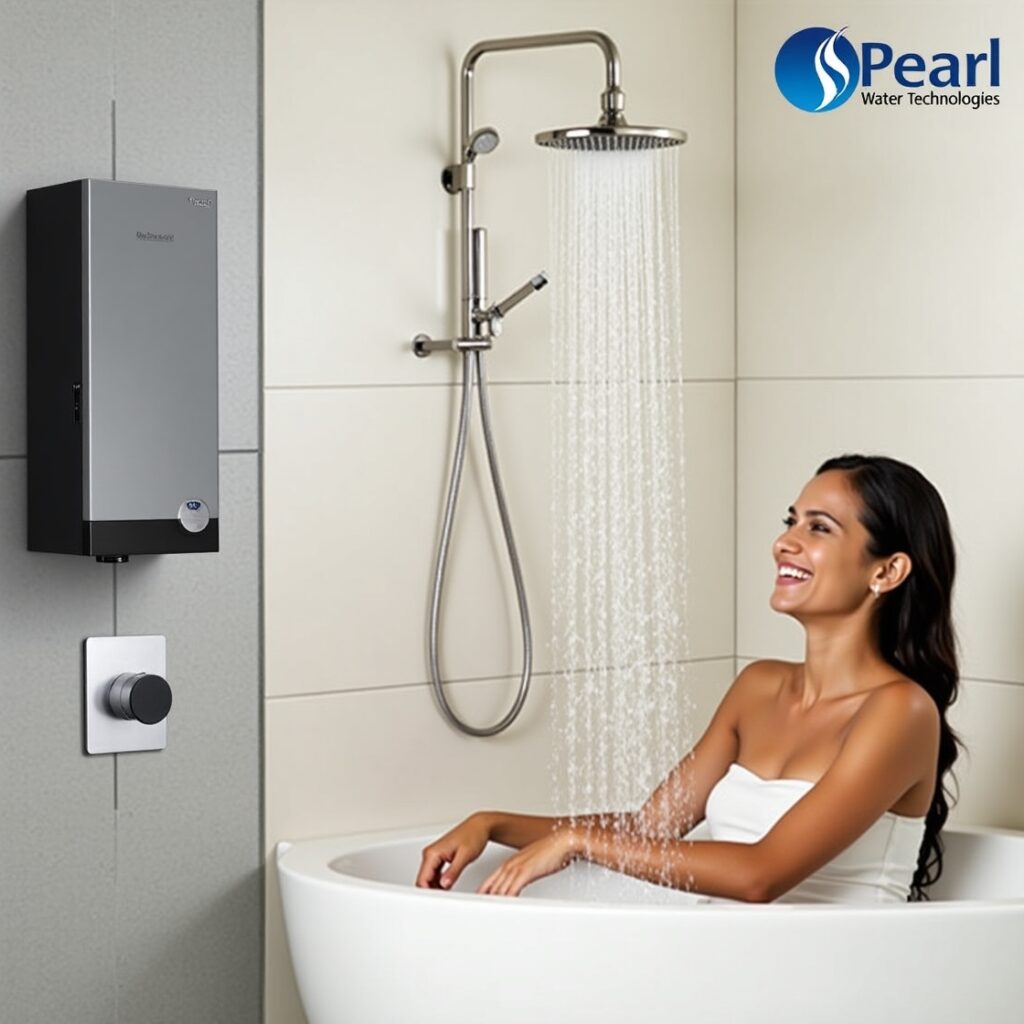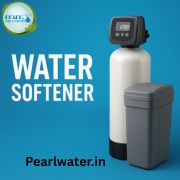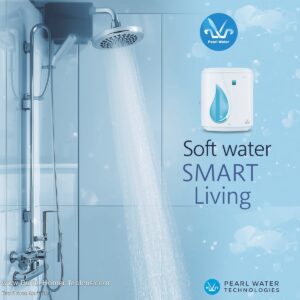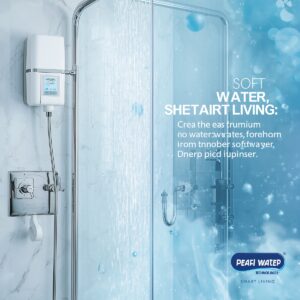Best Water Softener for Hard Water in India – Pearl Water Technologies
Eliminate hard water problems with Pearl Water Technologies’ water softeners. Enjoy soft skin, protect appliances & improve water quality at home.
📚 Table of Contents
Introduction
What is Hard Water?
Effects of Hard Water on Daily Life
What is a Water Softener?
How Does a Water Softener Work?
Types of Water Softeners
Key Benefits of Using a Water Softener
Why Choose Pearl Water Technologies?
Best Water Softener for Bathroom & Home
Installation & Maintenance Tips
Water Softener vs. Water Purifier – Know the Difference
Common Myths About Water Softeners
Conclusion
FAQs
Introduction
If you’ve noticed white spots on your faucets, dry hair after every shower, or your detergent doesn’t lather well — you’re likely dealing with hard water. It’s a silent enemy, slowly damaging your appliances, pipes, and even your skin. A water softener is the solution, and Pearl Water Technologies is your trusted expert in India.
What is Hard Water?
Hard water is water that contains high levels of calcium and magnesium salts. While not harmful to health directly, it causes several issues in household usage. Hard water is commonly found in borewells and municipal supply in various parts of India.
Effects of Hard Water on Daily Life
Hard water might seem harmless, but it leads to:
Scale buildup in pipes, geysers, washing machines
Faded clothes after washing
Dry skin and hair
Increased soap/detergent use
Reduced water pressure due to clogged pipes
Premature breakdown of home appliances
What is a Water Softener?
A water softener is a device that removes excess calcium and magnesium ions, making water “soft.” Soft water is gentle on skin, appliances, and plumbing. It works on the principle of ion exchange, where harmful ions are replaced with harmless sodium or potassium ions.
How Does a Water Softener Work?
Water softeners typically consist of:
Resin tank: Contains beads that trap hard minerals
Brine tank: Holds a salt solution to regenerate resin
Control valve: Manages regeneration and flow
Steps:
Hard water passes through resin beads.
Calcium and magnesium are trapped.
Sodium ions are released into the water.
Periodically, the system flushes and regenerates.
Types of Water Softeners
There are several types to suit different needs:
a) Bathroom Water Softeners
Compact and ideal for wall-mounting. Used directly with geysers or shower lines.
b) Whole House Water Softeners
Installed at the inlet of your home, treating all water entering the house.
c) Commercial Water Softeners
Large capacity systems used in hotels, hospitals, and industries.
d) Portable Magnetic Softeners
Not as effective; only modify ion behavior without removing them.
Key Benefits of Using a Water Softener
Saves Money: Increases lifespan of appliances
Soft Skin & Hair: No more dryness or dullness
Cleaner Clothes: Brighter, softer laundry
Improved Lathering: Less soap, more foam
Efficient Heating: No scale in water heaters
Environment Friendly: Less chemical waste from detergents
Why Choose Pearl Water Technologies?
Pearl Water Technologies is a trusted Indian brand, known for:
ISI & ISO certified water softeners
FRP vessels with durable design
Smart control valves with automatic regeneration
Models for bathrooms, kitchens, and entire homes
Transparent pricing and warranty
Free installation support (in select locations)
Our softeners are designed to handle TDS up to 2000 ppm, suitable for borewell and hard municipal water.
Best Water Softener for Bathroom & Home
🔹 Bathroom Softener (Wall Mount)
Capacity: 1000 LPH
Compact design
Easy salt refill
Price range: ₹6,000–₹8,000
Explore now
🔹 Whole House Softener (FRP Model)
Capacity: 2000–5000 LPH
FRP vessel with control valve
Installed at main water inlet
Price range: ₹14,000–₹30,000
Check full specs
Installation & Maintenance Tips
Always install near main water entry or geyser line
Refill softener salt every 20–30 days
Backwash and regenerate once a week
Avoid using RO water for softener salt preparation
Use only high-purity salt tablets
Maintenance is minimal and cost-effective when you follow basic schedules.
Water Softener vs. Water Purifier – Know the Difference
Feature
Water Softener
RO Water Purifier
Removes
Hard minerals (Ca, Mg)
Impurities, bacteria, TDS
Use
External use (bathing, washing)
Drinking
Output
Soft water
Safe drinking water
Ideal for
Skin, appliances
Kitchen use
Note: A softener is not a substitute for a drinking water purifier.
Common Myths About Water Softeners
❌ Myth 1: Soft water is not safe
✅ Fact: It is perfectly safe for all external uses.
❌ Myth 2: It makes water salty
✅ Fact: Sodium content increases minimally, not enough to taste.
❌ Myth 3: It wastes water
✅ Fact: Regeneration uses minimal water weekly; overall efficiency is high.
❌ Myth 4: Maintenance is difficult
✅ Fact: Pearl Water softeners require simple salt top-ups and basic flushing.
Conclusion
A water softener is not a luxury anymore—it’s a necessity for every Indian home battling hard water. Whether it’s protecting your expensive tiles, making your clothes softer, or giving your skin a break—soft water can transform your life.
Pearl Water Technologies offers a wide range of efficient, durable, and affordable water softeners with easy installation and support.
✅ Invest today in a softener and experience the difference from the very first shower!
🔗 Explore our full range now: https://pearlwater.in/water-softeners
FAQs
Q1: How long does a water softener last?
A: With proper care, 7–10 years.
Q2: Can I drink softened water?
A: Not recommended for drinking. Use RO purifier.
Q3: What type of salt is used?
A: High-purity water softener salt tablets.
Q4: How often should I regenerate the softener?
A: Weekly or as per your household usage.
Q5: Is it suitable for borewell water?
A: Yes, Pearl Water softeners are ideal for borewell sources.
Q6: What is the price of a domestic water softener?
A: Starting at ₹6,000 and varies by capacity.




